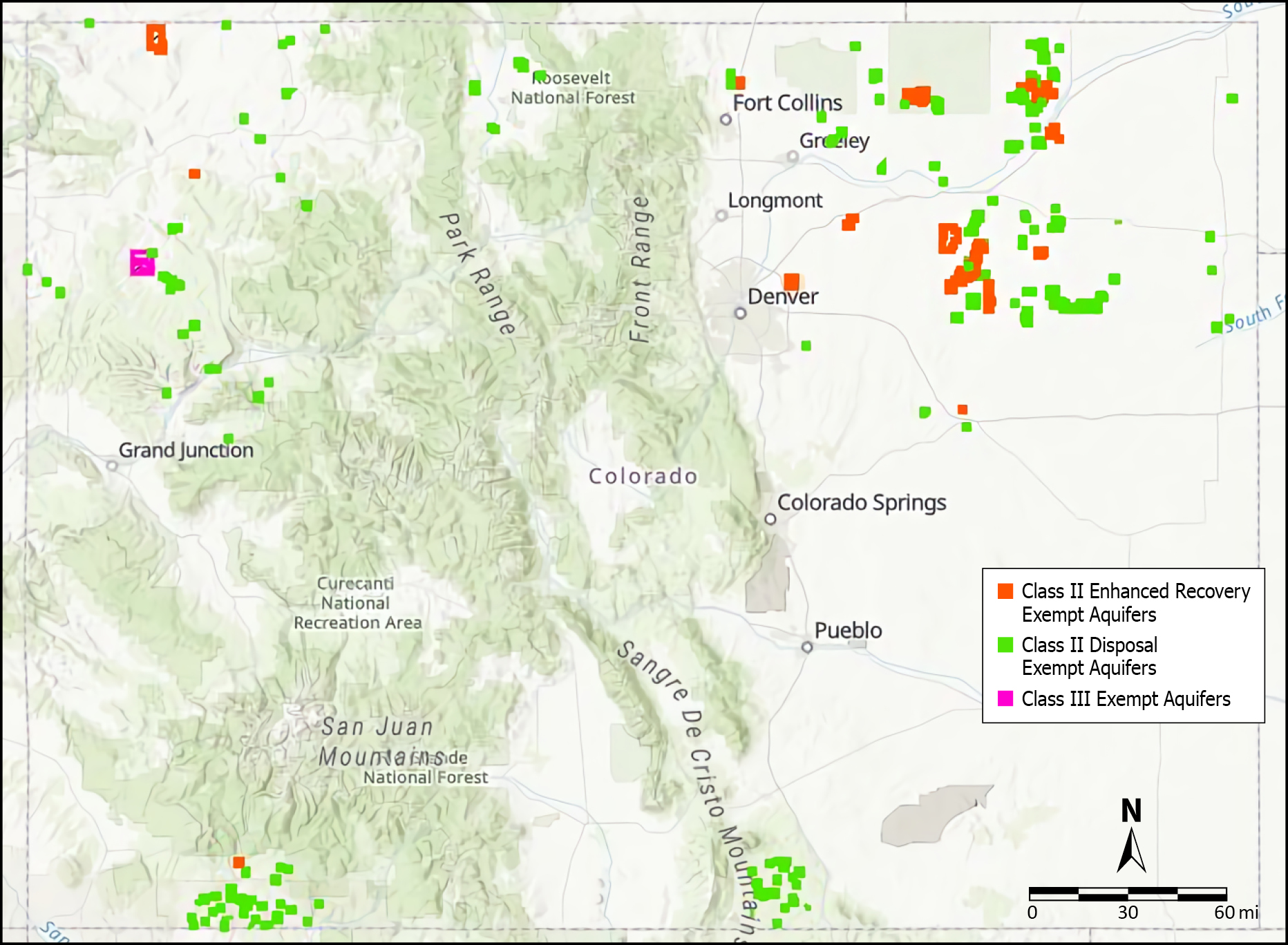Program that Sacrifices Underground Drinking Water for Oil and Gas Injection Raises Questions
The aquifer exemption program in the Safe Drinking Water Act (SDWA) Underground Injection Control (UIC) program allows certain oil and gas and mining activity to occur in groundwater that would otherwise be protected as a potential drinking water source.
Despite the high stakes of sacrificing potential drinking water for the sake of fossil fuel development, aquifer exemption programs at both the state and federal levels have suffered from inadequate funding and poor implementation. Aquifer exemptions have played a significant role in the growth of U.S. oil and gas production, eliminating the regulatory protections for groundwater that would otherwise slow or stop drilling.
Clean Water Action’s work examining state and federal aquifer exemption programs pushed the U.S. Environmental Protection Agency (EPA) to increase oversight, including the creation of the first-ever inventory and map of exemptions across the country. This increased transparency has enabled new analysis and scrutiny of state aquifer exemption programs. This analysis examines aquifer exemptions in Colorado associated with oil and gas injection activity, building on our existing body of work investigating and advocating for aquifer exemption reform in California, Texas, Oklahoma and at EPA.
We found that in order to adequately protect underground sources of drinking water (USDWs) in Colorado regulators must apply greater oversight to this program, beginning with improved data management and enhanced geologic review of exempted aquifers.
Aquifer Exemptions and Class II Injection in Colorado
The Colorado Oil and Gas Conservation Commission (COGCC) regulates oil and gas wells in the state. In 1984, EPA granted primacy to COGCC to administer the UIC Class II program, which includes the permitting and inspecting of oil and gas related injection wells used for both wastewater disposal and enhanced oil recovery. As part of its role regulating the industry, COGCC provides public data on oil and gas wells.
EPA’s national aquifer exemption database and map, when combined with COGGC injection well data and Colorado regulations, reveals a state program that needs further scrutiny and reform.
Read the full report below.
